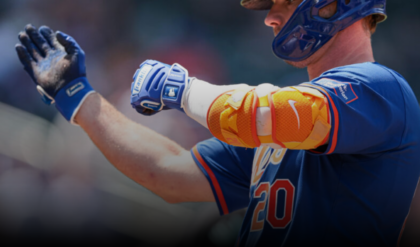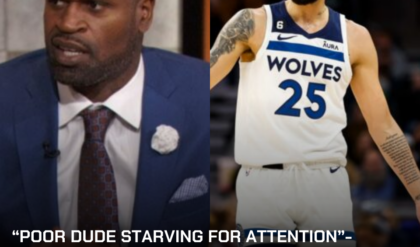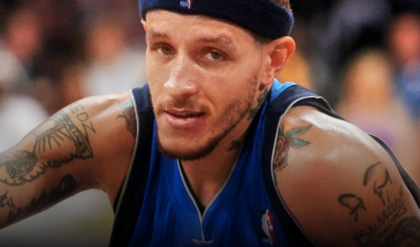/cdn.vox-cdn.com/uploads/chorus_image/image/73225296/usa_today_22114932.0.jpg)
As the season nears its end, let’s look at year-long trends to see if they are bad or good and whether they might be problems going forward.
The Spurs rank second in assists per game and first in assist percentage. Selflessness or lack of self-creation?
Marilyn Dubinski: I’d say some of both. Devin Vassell is really the only player on the team who can create for himself on a regular basis, so the Spurs’ high assist percentage has more to do with a good number of their buckets coming from creating for each other. At the same time, there is a certain amount of selflessness required for that system to work, and when they play selflessly and keep the ball moving on offense, they are much better than when they get bogged down in isolation plays.
Mark Barrington: What is it that Fred Rogers used to say? Look for the helpers. The Spurs lineup is mostly composed of helpers, which are good to have, but there is a lack of those who can do for themselves, except for Victor, of course. And I think that Victor himself needs to be more selfish at least some of the time, he just hasn’t figured out the timing consistently yet. I think that Devin Vassell is the only player who can consistently create for himself in the starting lineup, and he’s embracing that role more as the season goes on. Keldon Johnson is in that role for the bench unit, but he’s lacked consistency this season so far. The team needs more players who can create their own opportunities, but that’s going to require adding some more players, which will happen next season, partially through the draft and also through free agency.
Bruno Passos: This is a fun question. The Spurs are a clear indicator that a high assist rate doesn’t equate to a great offense, and many of the better offenses aren’t in the top 10 in that category, the Pacers being the one staggering exception. In this case I think it’s both, although in an ideal world they would definitely have players with greater self-creation that would likely, as a result, reduce that team assists total. I imagine the continued development of Devin Vassell and Victor Wembanyama will help with that.
Jeje Gomez: Both? The lack of self-creation was so apparent before this season that it feels like the Spurs were forced to accept a selfless identity. Every pass is supposed to get the team a small edge and the idea is that eventually someone will command a second defender and someone else will be open. It hasn’t worked particularly well and it might be partially to blame for the turnover issues, but It doesn’t feel like a long-term issue. As long as the offense adapts to get Victor Wembanyama and whoever else the front office brings in as shot creators the right kind of touches, the Spurs should be fine.
The Spurs rank 28th in three-point shooting percentage. Easily solved personnel issue or long-term problem, considering only three players under 25 are shooting over 35 percent from outside?
Dubinski: I think it’s mostly a personnel issue, proof being that they are 28th in the league in open three-pointers (nearest defender is 4-6 feet away) and 29th on wide open threes (6+ feet). Good shooters hit shots when they’re open, and the Spurs just don’t have enough of those. For the most part, the dearth of shooting talent has to do with the Spurs seemingly focusing on defensive potential over offense in the draft lately. There’s nothing wrong with that, but we are in an era where you aren’t going to win solely on the back of defense anymore. You still need to be a top 10 team on both sides of the ball, so the Spurs need to start upgrading on shooters.
Barrington: This ties into the first question somewhat. If there’s no one on the offense who can change the shape of the defense by getting past their man, defenders can just stick to their guy and prevent open shots. There is also the fact that the Spurs aren’t even that great at shooting when they’re open, but part of that is that they are rushing shots because they know a defender is coming.
Having more offensive creators would improve the catch-and-shoot percentage, but the Spurs still need more guys who can shoot. There’s a good possibility that some of these guys are already on the roster and just need another off season in the gym working on their shots. Sochan has already improved a lot, although his release is molasses-like. If he gets open looks, he can hit them at a reasonable rate. I think that can become even better with more work, and I look forward to him eventually fulfilling the Bruce Bowen role on offense, but with more dunking.
Passos: These things can swing pretty quickly, when you pull the right levers. The Thunder were last in the NBA in three-point percentage in 2021-22 and rank first this year. Shot creation helps — they’re tops in the league in drives per game, with elite penetrators like Shai Gilgeous-Alexander setting up teammates — but they also made the right roster changes and invested heavily in internal development with hiring former Spurs shot doctor Chip Engelland in the summer of 2022. The Spurs need to bring a similar holistic approach to this, and it should definitely be near the top of their roster-building priorities as they try to construct a winner around Wemby.
Gomez: This one’s tricky. On the one hand, it won’t be hard to sign a few shooters. On the other, the Spurs need guys who not only can shoot but also start for them. This year’s team had Cedi Osman, Doug McDermott and Devonte’ Graham, who were at least average shooters, but they were all coming off the bench or not playing. Blake Wesley, Malaki Branham, Jeremy Sochan and even Keldon Johnson just haven’t been good enough shooters, and that’s a large part of the young core. Collins didn’t pan out as a stretch five. Sochan has hit more shots lately, but his release is extremely slow and opponents don’t respect it. Maybe the Spurs get a starting point guard who is a great shooter and upgrade on Julian Champagnie and that’s enough to solve their biggest problems with spacing, but Sochan could be a problem if he doesn’t improve.
The Spurs rank third in pace but 11th in fast-break points and are one of the most turnover-prone teams in the league. Is playing fast the right idea for the Spurs?
Dubinski: Getting out in transition is the easiest way for them to score considering the lack of shooters, but they still need to focus on taking better care of the ball first and foremost. Not all of that is pace related, since a lot of their turnovers seem to come from lazy passing, Victor Wembanyama trying to dribble through crowds and getting picked, etc. They will benefit from combining more control with the pace, but more than anything they just need to be more disciplined.
Barrington: It’s absolutely the right idea. Before you’re good at something, you’re terrible at it. If you quit when you’re terrible, you’ll never get good. While the Spurs are still bad at holding onto and distributing the ball, they’ve been improving over the course of the season. They will clean up a lot of the bad decision-making with practice. I’m looking for Victor Wembanyama to take a leap in how well he executes quick-developing plays after his first full off-season this summer. He’s already elite in knowing where to be on the court and finding his teammates, and that’s just going to improve as he learns from Coach Popovich and gets reps on the practice court. NBA teams rarely practice during the season, which makes Victor’s development this year even more impressive to witness. I can’t wait to see what is going to happen in the fall.
Passos: They average 1.14 points per transition possession compared to a 109.6 overall offensive rating, so it’s the right approach in general at least for now. I also wonder how much their own live-ball turnovers are pushing that pace stat up. Either way, making these mistakes (and getting yelled at over them by Pop) is probably a good way to learn, but the hope has to be that they evolve into a group capable of being as dangerous when playing in the half court.
Gomez: It’s the right idea for any team that can’t shoot or create consistently in the half court, and this year’s Spurs fit that mold. Will it be the right idea for future Spurs teams? It depends on who they add. If they get a point guard who thrives in the half court, slowing the pace down will make sense. If they add a freak athlete at the wing, it will be foolish to play slow. In general, playing fast seems like the smart thing to do for now, but we won’t know if being a more methodical, risk-averse team will fit the Spurs better in a couple of years.





